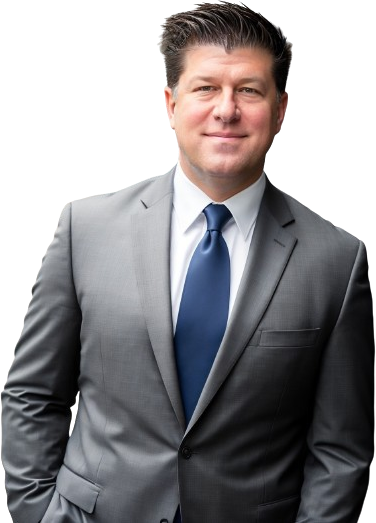
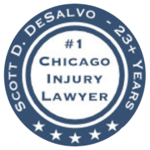

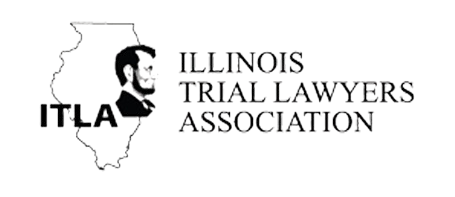

Last month I drove out to meet Robert at his place off North Avenue. He didn't want to leave the house much anymore after what happened to his wife, Lisa.
She'd gone in for what should've been routine gallbladder surgery at a hospital near Elmwood Park. They sent her home the same day. By that evening, she's back in the ER in septic shock. Turns out the surgeon perforated her bowel during the procedure and nobody caught it. The infection spread fast. She spent three weeks in ICU. Nearly died twice.
Robert showed me the discharge papers from the original surgery. Not a single mention of any complications. Nothing about a bowel perforation. They just sent her home like everything went fine.
When he asked questions later, the hospital stonewalled him. Their lawyers eventually offered a settlement—barely enough to cover the ICU bills, let alone the ongoing complications Lisa's dealing with. She can't work anymore. She's got chronic pain. She'll need more surgeries down the road.
The hospital's attitude? "We followed protocol. These things happen sometimes."
That's garbage, and it pisses me off every time I hear it.
I see this constantly as an Elmwood Park medical malpractice lawyer. Doctors mess up. Hospitals try to bury it. Insurance companies lowball victims hoping they'll just go away. The whole system protects healthcare providers first, patients second.
Here's what you need to know: when medical negligence wrecks your health or takes someone from you, you don't have to just accept it. You've got legal rights. You can fight back. And honestly? You should.
These cases are complicated and expensive. Hospitals have deep pockets and legal teams whose only job is making your claim disappear. That's why having a lawyer who's been through this before matters.
I handle these cases on contingency. You don't pay me a dime unless I win your case. Nothing upfront. And I'm not the kind of lawyer who disappears after 5 PM. You've got questions at 3 AM? Call me. I'll pick up.

People call me wondering if what happened to them counts as malpractice. Sometimes it does. Sometimes it doesn't.
Bad outcomes alone aren't malpractice. Medicine's complicated and risky. Even when doctors do everything perfectly, patients can still have complications. That's just how it is.
What matters legally is whether the healthcare provider met the "standard of care." In regular English—did they do what any competent doctor would've done in that situation?
With Lisa's case, bowel perforations can happen during gallbladder surgery. It's a known risk. But not recognizing it happened? Not checking before discharging her? Sending her home without proper monitoring? That's below the standard of care. That's malpractice.
For an Elmwood Park medical malpractice case, Illinois law says we've got to prove four things:
A doctor-patient relationship existed. Pretty straightforward. If they treated you, you've got this covered.
The provider breached the standard of care. This needs expert testimony. We bring in doctors in the same specialty who review everything and explain what should've happened versus what actually happened. I work with medical experts throughout Illinois who aren't afraid to call out negligence.
The breach directly caused your injury. We've got to connect the dots. Would you have been hurt if the doctor had done their job right? If not, we've got causation.
You suffered real damages. Medical bills, lost work, pain, disability, reduced quality of life. We document everything, including what you're going to need in the future.
Illinois makes these cases harder than they should be. Strict deadlines. Expert requirements. A bunch of legal hoops designed to protect doctors from lawsuits. Healthcare lobbyists spent years building these barriers. They're betting you won't know your rights or you'll get overwhelmed.
That's where I come in. I handle the legal maze while you focus on getting better.
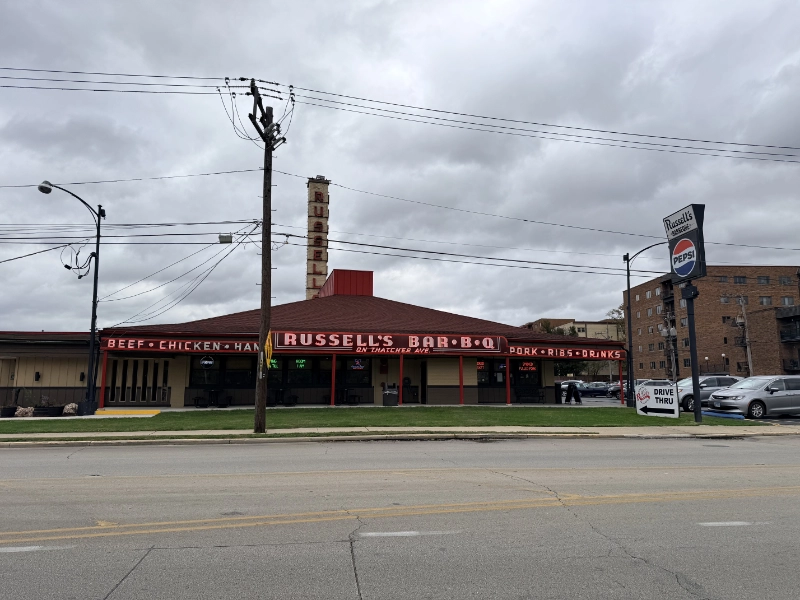
I've handled pretty much every type of medical screw-up there is. Some keep me up at night because they're so preventable. Here's what crosses my desk:
Surgery's risky. Everyone knows that going in. But some mistakes are just inexcusable.
Wrong-site surgery—operating on the wrong body part or wrong patient. Leaving surgical tools inside people. Cutting or damaging organs that shouldn't be touched. Nerve damage from carelessness. Post-surgical infections from unsanitary conditions. Anesthesia mistakes causing brain damage or death.
I had a client from Elmwood Park who went in for knee surgery. Simple arthroscopic procedure. Surgeon accidentally damaged an artery. Didn't notice during surgery. By the time they figured it out hours later, the leg couldn't be saved. Amputation below the knee.
One mistake. One moment of not paying attention. Changed this guy's entire life.
Hospitals have checklists specifically to prevent these errors. When they don't follow their own protocols and someone gets maimed, there need to be consequences.
Time is everything in medicine. When doctors miss diagnoses or take too long figuring things out, treatable conditions become fatal.
Cancer that gets missed or misdiagnosed. Heart attacks written off as indigestion or anxiety. Stroke symptoms ignored or blamed on other things. Infections that spiral into sepsis. Pulmonary embolisms dismissed as muscle pain.
I handled a case where a woman kept going back to her doctor complaining about persistent cough and chest pain. Doctor said it was probably allergies or maybe anxiety. Gave her an inhaler and sent her home. This went on for months. Finally, she goes to a different doctor who orders a chest X-ray. Lung cancer. Stage three by that point.
Earlier diagnosis would've made a huge difference. Instead, she got months of dismissive appointments while cancer spread through her body.
When doctors don't take symptoms seriously or don't order appropriate tests, people die. That's negligence.
These cases tear me up every single time. Parents are expecting a healthy baby. Instead, they're dealing with permanent disabilities caused by negligence during labor and delivery.
Cerebral palsy from oxygen deprivation. Erb's palsy from excessive pulling during delivery. Shoulder dystocia injuries. Maternal infections that don't get treated. Failure to do an emergency C-section when the baby's in distress. Brain damage because nobody was watching the fetal monitor.
These kids need lifelong specialized care. Therapy, equipment, surgeries, medications. The costs run into millions. Parents shouldn't be stuck with that bill when it happened because delivery room staff didn't do their jobs properly.
I work with obstetric experts who can review labor and delivery records and identify exactly when and how things went wrong.
Wrong medication prescribed. Wrong dosage. Nobody checks for drug interactions. Pharmacy dispenses the wrong prescription. These errors kill people and cause serious harm every year.
I represented a family whose father was prescribed a new medication that had a dangerous interaction with his heart medication. The interaction was well-documented in every medical database. Any doctor should've caught it. This one didn't. The man had a cardiac event and died three days later.
Doctors and pharmacists have a responsibility to get medications right. When they don't and patients die or get hurt, that's on them.
ERs around Elmwood Park and Cook County are supposed to diagnose and stabilize patients. Sometimes they send people home with serious conditions that never got properly evaluated.
Appendicitis diagnosed as stomach virus. Heart attacks dismissed as panic attacks. Meningitis sent home as migraine. Fractures missed on imaging. Head trauma not properly assessed.
When you show up at an emergency room, you're trusting them to figure out what's wrong and treat it appropriately. When they fail to do that and you end up back there days later in critical condition, that's malpractice.
Elderly residents in Elmwood Park nursing facilities deserve proper care and dignity. When facilities cut staff to boost profits, residents suffer.
Bedsores from inadequate repositioning. Falls from lack of supervision. Dehydration and malnutrition. Medication errors and missed doses. Sometimes outright physical or emotional abuse by staff members.
I've walked into nursing homes where the staffing is so inadequate it's dangerous. Residents left in soiled clothing for hours. Call buttons that go unanswered. People falling and lying on the floor for extended periods before anyone finds them.
When profit margins matter more than patient welfare, I make sure these facilities are held accountable.
I'm not gonna lie—medical malpractice cases in Illinois are tough. The state's made it progressively harder to sue healthcare providers. The legal system has built-in protections for doctors and hospitals.
Here's what we're dealing with in Elmwood Park and Cook County:
Hospitals have unlimited legal resources. Major medical centers have law firms on permanent retainer. Individual doctors carry malpractice insurance that includes aggressive legal defense. They can afford to drag cases out for years. Most people can't compete with that.
Expert testimony is mandatory and expensive. Illinois law won't let us just argue the doctor messed up. We need medical experts in the same specialty to review records and testify about the standard of care. Finding doctors willing to testify against colleagues isn't easy. Their fees run thousands of dollars per case.
Statute of limitations is unforgiving. You've got two years from when you discover the malpractice to file suit. There's also a four-year absolute deadline from when the negligence occurred, whether you knew about it or not. Miss these deadlines and your case dies. No extensions, no exceptions.
Juries sympathize with doctors. Most people trust their doctors and respect the medical profession. Convincing a jury that a healthcare provider committed negligence requires overwhelming evidence. Defense attorneys exploit this sympathy.
The defense uses delay tactics deliberately. They file motions to slow everything down. Schedule depositions then cancel them. Request documents then claim they need more time to review. Make insulting settlement offers knowing you're stressed and might take the money just to be done. They're counting on you giving up.
I've seen every trick they use. I know how to counter them.

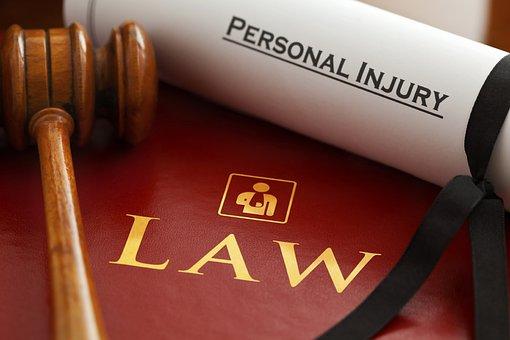

When you hire me, here's what the process looks like:
You're not talking to an intake coordinator or paralegal trying to screen you. You talk directly to me. I want to hear the whole story from you—what happened, how you got hurt, what you're dealing with now.
This initial consultation is free. No charge, no obligation. If I think your case is strong, I'll tell you. If I don't think it's worth pursuing, I'll tell you that too. I don't take cases just to have them. I only take cases I believe I can win.
If we move forward, I immediately request your complete medical records from everyone involved. Not discharge summaries—the full charts. Operative notes, nursing documentation, medication records, imaging studies, everything.
I review them myself first. After years of handling these cases, I can spot problems and inconsistencies pretty quickly. Then I send everything to medical experts for detailed analysis.
Medical expert reviews cost serious money. A lot of lawyers won't invest that upfront. I do it because I need to understand what actually happened before filing a lawsuit.
The quality of your medical experts can make or break your case. I don't use professional witnesses who'll say whatever you pay them to say. I work with respected physicians from major institutions who review cases objectively and aren't afraid to testify about substandard care.
These experts write detailed reports explaining what the defendant did wrong and how it harmed you. They testify at depositions and trial. The defense will have their experts too. Mine are more credible.
Medical malpractice typically causes permanent, life-altering injuries. You're entitled to compensation for everything—past losses and future losses.
Past and future medical expenses. Lost income and diminished earning capacity. Pain and suffering. Loss of quality of life. Disability and disfigurement. In wrongful death cases, the family's losses.
I work with economists, life care planners, and vocational experts to document and quantify your damages completely. We don't leave anything out.
Most malpractice cases settle before trial. But insurance companies only offer fair settlements when they see you're serious about going to court.
I don't write polite demand letters. I file lawsuits. Conduct discovery. Take depositions. Prepare expert witnesses. Make it absolutely clear we're ready to try the case.
When defense lawyers see we're not bluffing, real settlement negotiations begin. I've secured substantial settlements for Elmwood Park clients. But I only settle when the amount is fair. If they won't pay what you deserve, we go to trial.
Some lawyers avoid trial at all costs. They settle everything quickly because trial is difficult and unpredictable. Not me.
I've tried medical malpractice cases in Cook County and throughout Illinois. I know how to present complex medical evidence so juries understand it. I know how to cross-examine defense experts and expose weaknesses in their testimony. I know how to tell your story effectively.
Insurance companies know I try cases. That's why they negotiate seriously.

If you suspect medical negligence hurt you or someone you love in Elmwood Park, here's your immediate action plan:
Call me today. Don't wait around. Evidence disappears. Memories fade. Witnesses move or become unavailable. The statute of limitations clock is running. The sooner you contact me, the stronger your case will be.
Get copies of all your medical records. You have a legal right to your complete medical records. Request them from every doctor, hospital, and healthcare facility involved. Don't accept summaries. Demand the complete chart.
Don't sign anything from the hospital or insurance company. They may contact you asking you to sign releases, settlement agreements, or other documents. Don't sign anything without having me review it first. These documents often contain language that destroys your legal rights.
Stay off social media regarding your case. Defense lawyers will scour your Facebook, Instagram, TikTok, everything. If you post photos of yourself looking happy or doing physical activities, they'll show it to the jury claiming you're not really injured. Just don't post about your case or your activities.
Document everything meticulously. Keep a detailed journal of your symptoms, pain levels, limitations, medical appointments, and how the injury affects your daily life. Take photographs of visible injuries. Save all medical bills, receipts, and related expenses.
Don't speak with insurance adjusters. They'll call sounding sympathetic and concerned. They're not your friends. Everything you say will be recorded and used to deny or minimize your claim. Refer them to me.
Continue all medical treatment. Don't miss appointments or stop following treatment plans. The defense will argue that if you're not treating, you must not be seriously injured. Follow your doctors' recommendations and attend all appointments.
Find Out What YOUR Case Might Be Worth...for free.
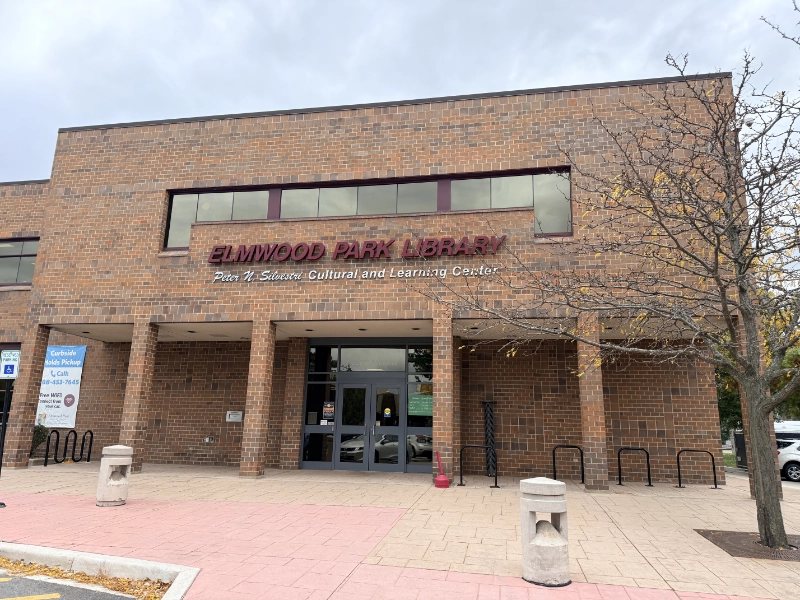
Nothing unless I win your case. I work on contingency. My fee comes from your recovery. If we don't win, you owe me nothing. I also advance all litigation costs—expert fees, filing fees, deposition costs, medical records. You don't reimburse those unless we recover money for you.
Depends on the case complexity and how cooperative the defense is. Some cases settle within a year. Others take two or three years, especially if we go to trial. I move your case as efficiently as possible while maximizing your recovery.
Absolutely. I don't care how big the hospital is or how famous the doctor is. Their reputation doesn't intimidate me. Actually, larger institutions often carry better insurance coverage, which can mean larger settlements.
No. Apologies don't affect your legal rights. Illinois has a law preventing apologies from being used as evidence of liability in malpractice cases. A doctor can apologize repeatedly—it doesn't eliminate your right to compensation.
Yes. Informed consent forms explain potential risks, but they don't give healthcare providers permission to be negligent. Signing a form acknowledging surgery carries risks doesn't mean the surgeon can operate while impaired or leave instruments inside you.
There's no standard formula. Every case is unique. Value depends on injury severity, your age and income, future medical needs, pain and suffering, disability level, and many other factors. During our consultation, I can give you a general range based on similar cases I've handled.
I minimize disruption to your life. I schedule meetings around your availability, including evenings and weekends if necessary. If injuries prevent you from coming to my office, I'll meet you wherever is convenient. Most cases settle without trial, so you likely won't need to miss work for court.
If your case goes to trial, yes, you'll need to testify. But most cases settle before reaching trial. And if we do go to trial, I'll prepare you thoroughly so you know exactly what to expect and what questions you'll face.
They frequently try this defense. They'll claim you didn't follow post-operative instructions or medication schedules properly. That's why documentation is crucial. We'll review your records and have experts testify about whether anything you did actually caused the injury. This defense usually falls apart under scrutiny.
Yes. You can fire your lawyer at any time. I've taken over medical malpractice cases from other attorneys who weren't giving them proper attention. If your current lawyer isn't fighting for you, call me.
There are plenty of personal injury lawyers out there. Some are good at what they do. Many aren't. Here's what makes me different:
I answer my phone personally. When you call, you reach me directly. Not a receptionist. Not a paralegal. Not an answering service. If I'm in court or with another client, I return your call myself, usually within an hour.
I'm available around the clock. Medical emergencies and legal questions don't happen on a convenient schedule. You can call me at 2 AM or on Sunday afternoon. If you need to talk, I'm available. That's not marketing hype—that's how I actually work.
I personally handle your case. Some firms hand cases off to junior attorneys or paralegals after the initial consultation. Not here. I handle your case from beginning to end. I review records, conduct depositions, negotiate settlements, try cases. You hired me, you get me.
I don't settle cheap. Some lawyers take high volumes of cases and settle them quickly for whatever they can get. I take fewer cases and fight harder on each one. I'll reject inadequate settlement offers, even if accepting would be easier for me.
I understand the medicine. After years handling malpractice cases, I've reviewed thousands of pages of medical records and worked with dozens of physician experts. I understand medical procedures, terminology, and standards of care. When I read your records, I know what I'm looking at.
I'm part of this community. I'm not some downtown lawyer who doesn't know Elmwood Park. I know the area, the hospitals, the courts, the judges, the defense attorneys. Local knowledge matters.
I actually give a damn about your outcome. This isn't just business to me. When I take your case, I'm personally invested in winning. I think about my cases constantly—nights, weekends, whenever. Your case matters to me because you matter to me.

Here's something the healthcare industry doesn't advertise: medical errors are among the leading causes of death in America. Studies estimate that preventable medical mistakes kill more than 250,000 people annually. Some estimates go even higher.
Yet holding healthcare providers accountable is incredibly difficult. Tort reform laws protect doctors and hospitals. Insurance companies fight claims aggressively. Juries are reluctant to find against sympathetic medical professionals. The legal system creates barriers at every step.
Most medical malpractice never results in lawsuits. Patients don't realize they have viable claims. They assume bad outcomes are just unfortunate circumstances. They believe hospitals when told "complications happen sometimes." They feel intimidated by the legal process and give up.
The healthcare industry depends on this. They count on patients not fighting back.
Don't be another person who just accepts it. When medical negligence destroys your health or takes someone you love, you have legal rights. You can demand accountability. You deserve justice and compensation.

I handle medical malpractice cases throughout Elmwood Park and the surrounding Cook County area. I know this community and have represented clients from throughout the region.
I also serve clients in nearby communities including:
If you're anywhere in the western Cook County suburbs and medical negligence has harmed you, call me.
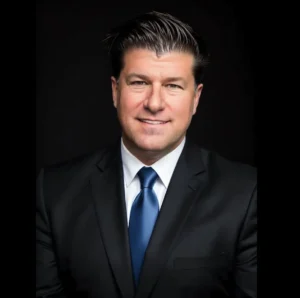
Here's the bottom line: if medical malpractice hurt you or someone you love in Elmwood Park, you need to take action now. Evidence is disappearing. The statute of limitations is running. The hospital's legal team is already building their defense.
You need an attorney who understands medical malpractice cases and isn't intimidated by powerful healthcare institutions. Someone who'll treat you like a person, not a file number. Someone who's available when you need them.
That's me.
Free consultation. I'll review your situation honestly and explain your options. If I take your case, you pay nothing unless I win. Zero upfront. Zero out of pocket. No fee unless we recover compensation for you.
And I'm available right now. Not tomorrow. Not Monday morning. Right now. Doesn't matter if it's late at night or early morning, weekend or holiday. Call me and we'll talk about what happened.
You've already been through enough. The medical system failed you. Don't make it worse by not taking action.
Call me now. 312-500-4500. Let's get you the justice you deserve.
Hiring Scott was one of the best moves I have made in my life. Scott is a down to earth person and attorney. Scott is a 5 star first class act who really knows his stuff. The Judge said his presentation was one of if not the best he had ever seen. Take my advice, hire Scott I’m sure you’ll be 200% satisfied I was.

Scott not only cares about the case, but he truly cares about his clients and that makes him the best lawyer I have ever met and hired! He won my case! He is thorough in everything he does. I highly recommend Scott, and will always refer him to family and friends.

I hired Scott DeSalvo upon a friend’s recommendation. His office kept me informed of developments as they happened, and I felt the settlement reached was fair considering my injuries. I would highly recommend Scott DeSalvo to represent your personal injury case.

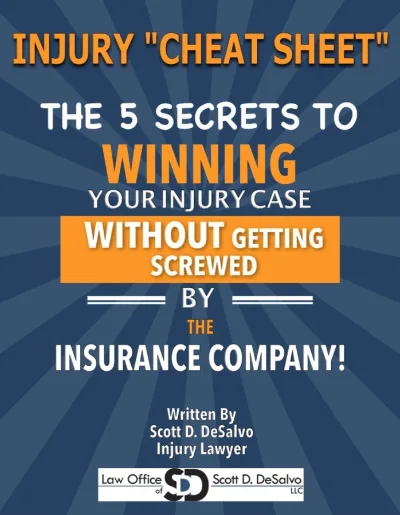

Scott DeSalvo founded DeSalvo Law to help injured people throughout Chicago and surrounding suburbs. Licensed to practice law in Illinois since 1998, IARDC #6244452, Scott has represented over 3,000 clients in personal injury, workers compensation, and accident cases.
No Fee Unless You Win | Free Consultation | 24/7 Availability Call or Text: (312) 500-4500
>>Read More
Main Office:
1000 Jorie Blvd Ste 204
Oak Brook, IL 60523
New Cases: 312-500-4500
Office: 312-895-0545
Fax: 866-629-1817
service@desalvolaw.com
Chicago and Other Suburban Offices
By Appointment Only